Photo: Jerod Harris / Getty Images for The Recording Academy
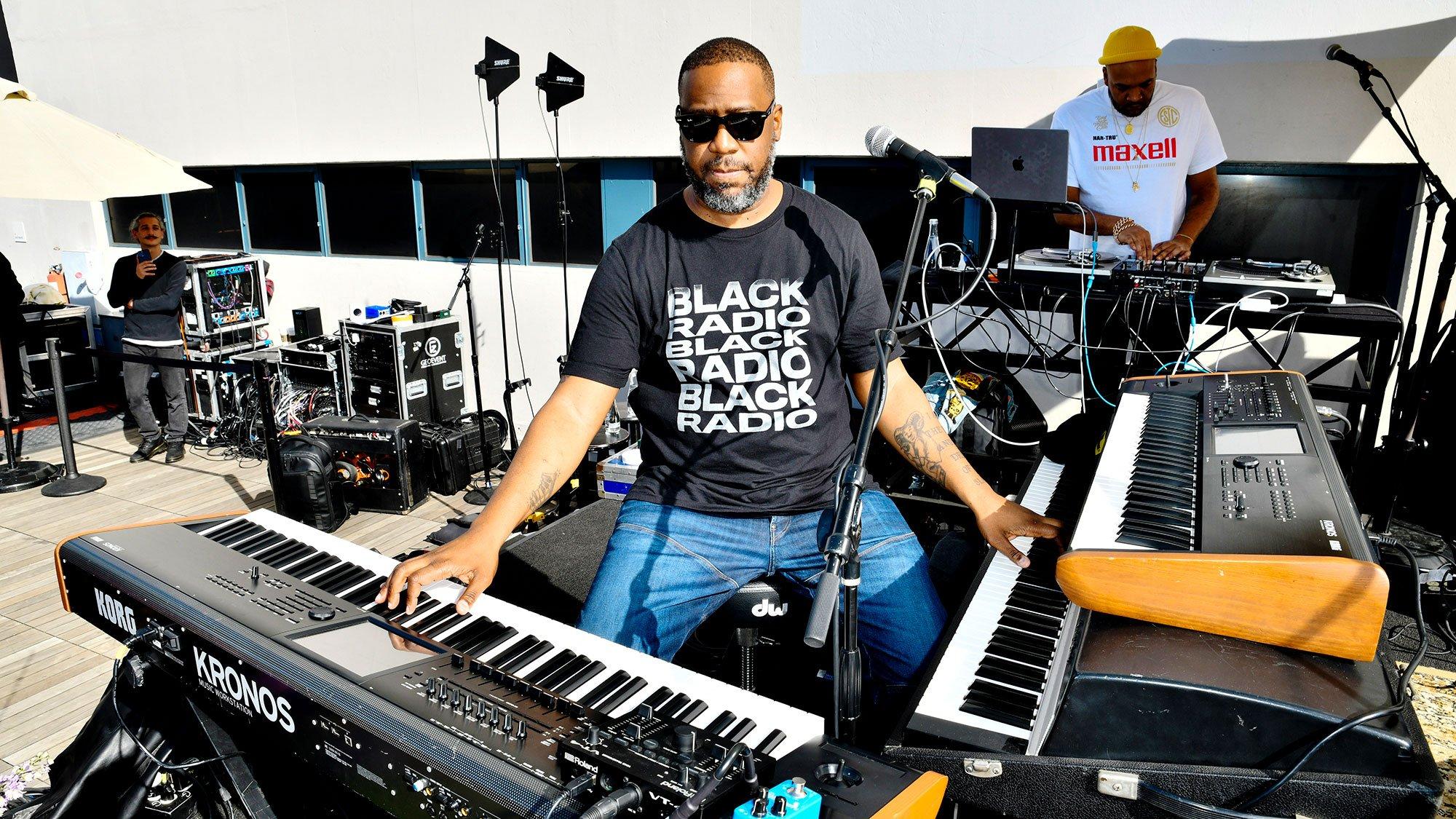
news
The Recording Academy’s Los Angeles Chapter Honored Its Musical Family At 2024 GRAMMY Nominee Celebration
The unofficial kick-off to GRAMMY Week brought people from every corner of the music industry together for a sparkling celebration of Los Angeles' talents.
Hundreds of music professionals gathered Jan. 27 for the Los Angeles Chapter of the Recording Academy’s annual nominee celebration, held at NeueHouse Hollywood. Hailed by Academy CEO Harvey Mason Jr. as the "unofficial kickoff to GRAMMY Week," the event featured performances by three of this year’s nominees from the chapter: Gaby Moreno, Robert Glasper, and Jordin Sparks.
Chapter Board Vice President Lynne Earls said that the unofficial theme for both the board and the chapter this year is "belonging," and those vibes certainly trickled down to the nominee celebration. People from every part of the recording industry came together to enjoy brunch, have some drinks, and mix and mingle.
Groups of attendees called out friendly greetings to each other, catching up over mimosas and waffles, and attendees exchanged hugs while clad in everything from cocktail dresses to platform combat boots. Not unlike at the actual GRAMMY Awards, fashion was truly on parade at the nominee celebration. Attendees rocked fully bedazzled suits, bespoke leather jackets, and plush safari print hoodies; at least one crystal-covered clutch resembling an old school cassette was spotted.
While many attendees at the event undoubtedly hope to take home a golden gramophone on Feb. 4, Mason took pains to remind the room that being nominated for the award is just as life-changing. "Being a GRAMMY nominee… that goes with you for your entire life and your entire career. On your bio, it's always going to say ‘GRAMMY nominee,’ and hopefully it's going to say ‘GRAMMY winner.’"
In his remarks, Recording Academy President Panos Panay agreed with Mason but made a special effort to remind attendees that being a member of the GRAMMY family is more than just attending an awards show once a year.
"We're known for the GRAMMYs, which are the big graduation ceremony … but what's important to know is that the Academy works 365 days a year," he said. "We're here to advocate for the creative class." He encouraged non-member attendees to join the Academy, saying "We really would love to have you become a member of this incredible group of professionals."
Qiana Conley Akinro, the Senior Executive Director of the Recording Academy Los Angeles Chapter, also encouraged attendees to stop into the D.R.E.A.M. Lounge on the second floor of NeueHouse, which had been set up in partnership with Pacific Bridge Arts, Paper Magazine, and Netflix and featured a gifting suite full of Hallmark Mahogany items and a bloom bar by Postal Petals. Several panels were held in the space, which was given the D.R.E.A.M. acronym from the phrase "Diversity Reimagined Engaging All Musicians." Earls talked about her work with Women In The Mix and Academy Proud, while Academy Governor Kev Nish hosted a panel talking about the Gold Music Alliance, which aims to boost the impact of Pan-Asian people within both the GRAMMY organization and the recording industry.
After the panels, various nominees stopped by the D.R.E.A.M. video studio to give testimonials about how they found out they’d been honored. Best Jazz Arrangement, Instrument and Vocals nominee Maria Mendes relayed the importance of being the first Portuguese person nominated for a GRAMMY in the category, as well as her pride in repping her country’s music. Mendes even shouted out the jewelry and fashion designers behind her upcoming GRAMMY ceremony look, both of which are from Mendes’ home country.
Colombian singer and Best Latin Pop Album nominee AleMor said she’s proud to represent her home country and independent artists. "I'm honored that I get to be here, and I am grateful that I'm alive at the same time as all of the people that are alive now," she told onlookers. "I think music is like invisible medicine, you know, like you listen to a song and it might make you feel good and you have no idea why. We are little magicians in the world, We get to change people's moods, and we get to change the way people see life."
2024 GRAMMY Nominations: See The Full Nominees List
The Los Angeles Chapter Nominee Celebration was made possible by generous support from Premier Sponsor Netflix, Co-Presenting Sponsors Pacific Bridges Arts, Paper Magazine, Official Sponsors SESAC Latin and NeueHouse Hollywood, and Gifting Sponsors Hallmark Mahogany, HYPNO, Fox Dog Productions, the Canadian Consulate, and VYDIA.
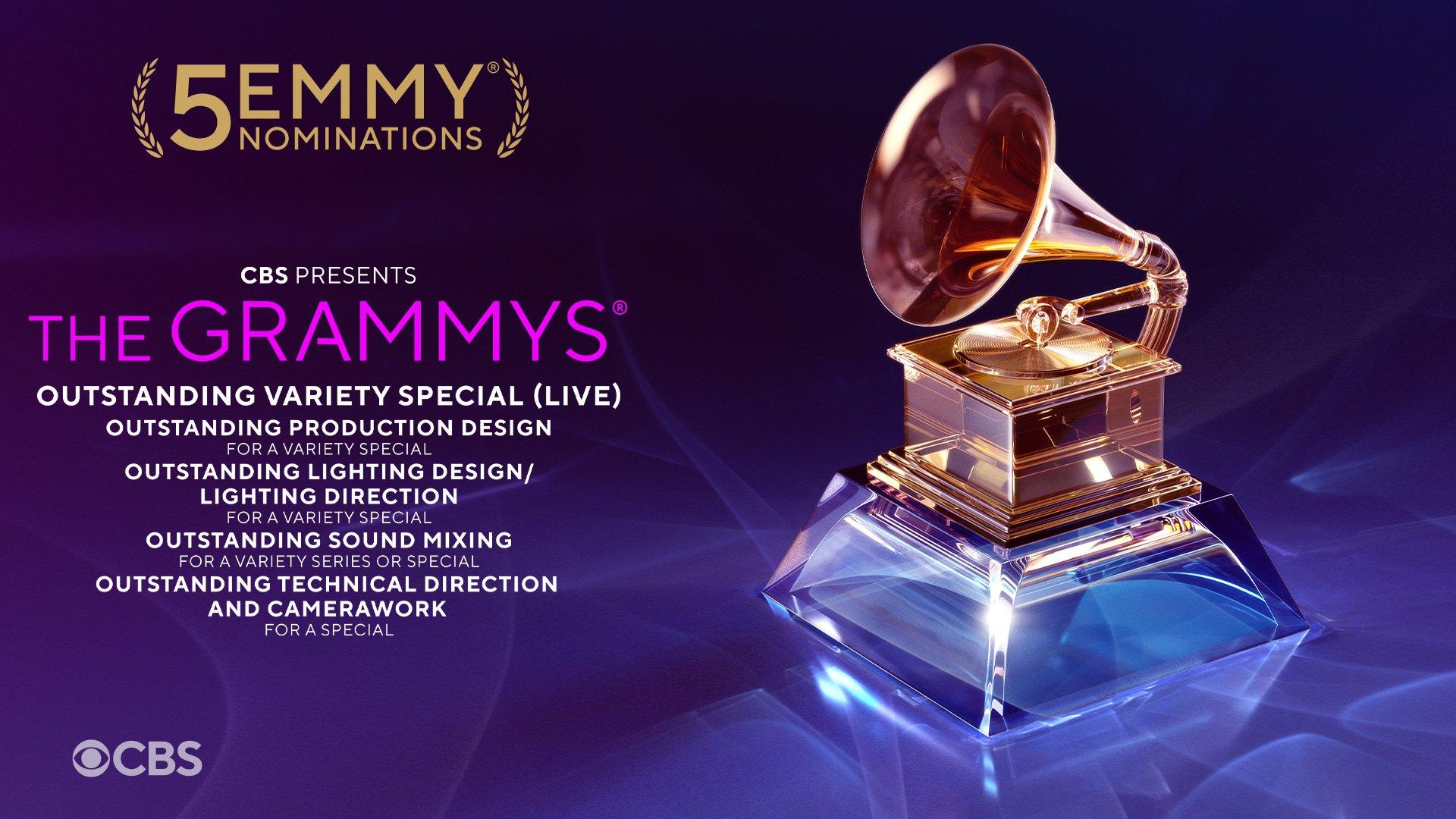
Graphic Courtesy of CBS
news
The 2024 GRAMMYs Have Been Nominated For 5 Emmys: See Which Categories
The 2024 GRAMMYs telecast is nominated for Outstanding Variety Special (Live), Outstanding Production Design For A Variety Special, and three more awards at the 2024 Emmys, which take place Sunday, Sept. 15.
It’s officially awards season! Today, the nominees for the 2024 Emmys dropped — and, happily, the 2024 GRAMMYs telecast received a whopping five nominations.
At the 2024 Emmys, the 2024 GRAMMYs telecast is currently nominated for Outstanding Variety Special (Live), Outstanding Production Design for a Variety Special, Outstanding Lighting Design/Lighting Direction for a Variety Special, Outstanding Sound Mixing for a Variety Series or Special, and Outstanding Technical Direction and Camerawork for a Special.
Across these categories, this puts Music’s Biggest Night in a friendly head-to-head with other prestigious awards shows and live variety specials, including the Super Bowl LVIII Halftime Show starring Usher as well as fellow awards shows the Oscars and the Tonys.
2024 was a banner year for the GRAMMYs. Music heroes returned to the spotlight; across Categories, so many new stars were minted. New GRAMMY Categories received their inaugural winners: Best African Music Performance, Best Alternative Jazz Album and Best Pop Dance Recording. Culture-shaking performances and acceptance speeches went down. Those we lost received a loving farewell via the In Memoriam segment.
The 2025 GRAMMYs will take place Sunday, Feb. 2, live at Crypto.com Arena in Los Angeles and will broadcast live on the CBS Television Network and stream live and on demand on Paramount+. Nominations for the 2025 GRAMMYs will be announced Friday, Nov. 8, 2024.
For more information about the 2025 GRAMMY Awards season, learn more about the annual GRAMMY Awards process, read our FAQ (Frequently Asked Questions) section, view the official GRAMMY Awards Rules and Guidelines, and visit the GRAMMY Award Update Center for a list of real-time changes to the GRAMMY Awards process.
GRAMMY News, Performances & Highlights
2025 GRAMMYs To Take Place Sunday, Feb. 2, Live In Los Angeles; GRAMMY Awards Nominations To Be Announced Friday, Nov. 8, 2024
GRAMMY Awards Updates For The 2025 GRAMMYs: Here's Everything You Need To Know About GRAMMY Awards Categories Changes & Eligibility Guidelines
How To Submit Your Music For The 2025 GRAMMYs: Deadlines & Webinars, GRAMMY Nominations & Voting Process, And More
2024 GRAMMYs: See The Full Winners & Nominees List
The 2024 GRAMMYs Have Been Nominated For 5 Emmys: See Which Categories
10 Must-See Moments From The 2024 GRAMMYs: Taylor Swift Makes History, Billy Joel & Tracy Chapman Return, Boygenius Manifest Childhood Dreams
Watch All The Performances From The 2024 GRAMMYs: Tracy Chapman & Luke Combs, Billie Eilish, Olivia Rodrigo & More
2024 GRAMMYs: Miley Cyrus Celebrates "Flowers" GRAMMY Win With Jubilant Performance
2024 GRAMMYs: Dua Lipa Debuts "Training Season" & Slays "Houdini" In Mesmerizing Opening Performance
2024 GRAMMYs: Taylor Swift Makes GRAMMY History With Fourth Album Of The Year Win For 'Midnights'
2024 GRAMMYs: Billie Eilish Performs An Ethereal Rendition Of "What Was I Made For?"
2024 GRAMMYs: Watch Olivia Rodrigo Bleed Her Soul Dry With Dramatic "Vampire" Performance
SZA Wakes Up The 2024 GRAMMYs With A Performance Of "Snooze" & "Kill Bill"
2024 GRAMMYs: Luke Combs & Tracy Chapman Team Up For A Surprise Duet Version Of "Fast Car"
2024 GRAMMYs: Burna Boy's Fantastic Afro-Fusion Lights Up The Stage
2024 GRAMMYs: Travis Scott Turns Music's Biggest Night Into A Heated Utopia
2024 GRAMMYs: Watch Joni Mitchell Deliver Heartwarming Performance Of "Both Sides Now" In Her GRAMMY Stage Debut
U2 Performs "Atomic City" & Transports The 2024 GRAMMYs To Las Vegas
2024 GRAMMYs In Memoriam: Stevie Wonder, Lenny Kravitz & More Pay Tribute To Late Icons
2024 GRAMMYs: Billie Eilish Wins GRAMMY For Song Of The Year For "What Was I Made For?" From The 'Barbie' Soundtrack
2024 GRAMMYs: Miley Cyrus Wins The GRAMMY For Record Of The Year for "Flowers"
2024 GRAMMYs: Victoria Monét Wins The GRAMMY For Best New Artist
2024 GRAMMYs: Jack Antonoff Wins GRAMMY For Producer Of The Year, Non-Classical For The Third Year In A Row

Theron Thomas Wins Songwriter Of The Year, Non-Classical | 2024 GRAMMYs Acceptance Speech

Watch Taylor Swift Walk The 2024 GRAMMYs Red Carpet
2024 GRAMMYs: Jay-Z Receives Dr. Dre Global Impact Award
Relive The 2024 GRAMMYs Red Carpet: Interviews With Dua Lipa, Ice Spice & More
10 Acceptance Speeches That Made Us Laugh, Cry, & Smile At The 2024 GRAMMYs
Big First Wins At The 2024 GRAMMYs: Karol G, Lainey Wilson, Victoria Monét & More
13 Moments From The 2024 GRAMMYs You Might Have Missed
2024 GRAMMYs Red Carpet Fashion Highlights: Taylor Swift, Dua Lipa, Billie Eilish, Olivia Rodrigo, boygenius & More
9 Ways Women Dominated The 2024 GRAMMYs
Overheard Backstage At The 2024 GRAMMYs: What Jack Antonoff, Laufey & Other GRAMMY Winners Said
How The 2024 GRAMMYs Saw The Return Of Music Heroes & Birthed New Icons
Taylor Swift Announces New Album After 13th GRAMMY Win At The 2024 GRAMMYs
2024 GRAMMYs: Miley Cyrus Wins First-Ever GRAMMY For "Flowers"

Billie Eilish Wins Best Song Written For Visual Media For "What Was I Made For?" (From 'Barbie The Album') | 2024 GRAMMYs Acceptance Speech
2024 GRAMMYs: Karol G Wins The First GRAMMY Award Of Her Career For Best Música Urbana Album

Watch Ice Spice’s 2024 GRAMMYs Red Carpet Interview

boygenius Celebrate Their Three GRAMMY Wins At The CNB "First Look" Cam At The 2024 GRAMMYs Premiere Ceremony
In Memoriam (2023): The Recording Academy Remembers The Music People We Lost

Killer Mike Wins Best Rap Album For 'MICHAEL' | 2024 GRAMMYs Acceptance Speech
2024 GRAMMYs: Tyla Wins First-Ever GRAMMY Award For Best African Music Performance

Watch Billie Eilish & FINNEAS’ 2024 GRAMMYs Red Carpet Interview

Boygenius Wins Best Rock Song For "Not Strong Enough" | 2024 GRAMMYs Acceptance Speech
Burna Boy, Tyla And Africa's Moment At The 2024 GRAMMYs
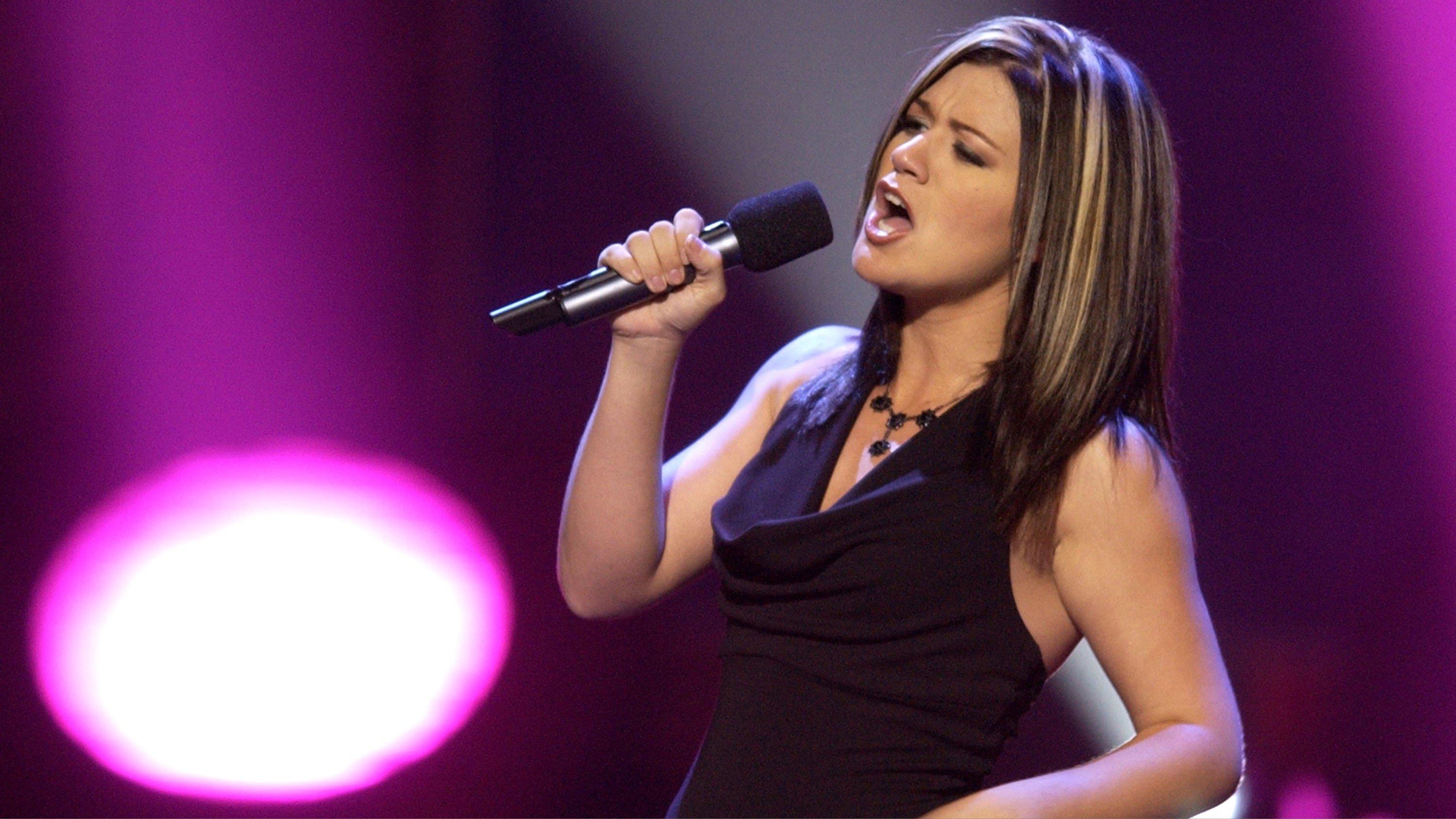
Photo: Steve Granitz / GettyImages
news
On This Day In Music: "American Idol" Premieres On Fox Network
For decades, "American Idol" has been instrumental in discovering some of music’s biggest names and pioneering the reality TV contest genre. As the show enters its 22nd run, here’s a look at how it has become an iconic household staple across the country.
For countless Americans, "American Idol" is intertwined with core memories as a show that had families eagerly glued to their TVs twice a week. It brought generations together, creating moments of both suspense and excitement that are still remembered today, as the show continues to run in its 22nd season.
Created by visionary entrepreneur Simon Fuller, "American Idol" premiered on June 11, 2002, as a fresh spin-off of the British program "Pop Idol." It revolutionized how Americans engaged with reality TV through its interactive, viewer-driven voting system, which encouraged audience participation in the success of their favorite contestants. The show also offered viewers a glimpse into contestants' candid backstories and personal journeys, anchoring emotional investment and skyrocketing the show's popularity.
The show's debut season featured a dynamic trio of judges: singer Paula Abdul, TV personality Simon Cowell, and producer Randy Jackson. Their contrasting personalities brewed a chemistry as captivating as the hopeful performances. Abdul’s warmth, Cowell's blunt wit, and Jackson’s humor added extra layers of entertainment, making the twice a week broadcasts a must-watch.
The first season of "American Idol" also unforgettably introduced the country to Kelly Clarkson. Since her debut — with a heart-tugging backstory about being the average girl-next-door with big dreams — Clarkson has gone on to tour the world, host her own TV talk show, and secured her spot as one of music’s most beloved talents.
"I had dreams since I was a little girl that I wanted to be on the GRAMMYs, or some award show and sing on there," Clarkson mentioned in her pre-audition interview. Flash forward 22 years, the pop singer has accumulated 17 GRAMMY nominations and three wins, propelled by a powerful vocal gift.
Other artists who launched their careers from the show's platform include Jordin Sparks, Carrie Underwood, Adam Lambert, and Jennifer Hudson, who each serve as testament to the show’s impact in music.
"American Idol" has not only opened our eyes to some of our favorite musicians, but it also has given us some of our favorite pop culture moments.
A video that frequently resurfaces on social media captures a memorable moment between Katy Perry and contestant Noah Davis, where they bond over the slang term 'wig'.
"No, it’s not your language. It’s just for us," Perry joked to her fellow judges, Lionel Richie and Luke Bryan, when they questioned the term’s meaning.
After two decades on air, "American Idol" has etched a lasting legacy in pop culture. It has paved the way for other reality TV music shows and created lasting memories for music fans along the way.
“The show transcends age, gender, ethnicity, everything,” Underwood told Billboard in 2005.
Explore More History-Making Moments In Music
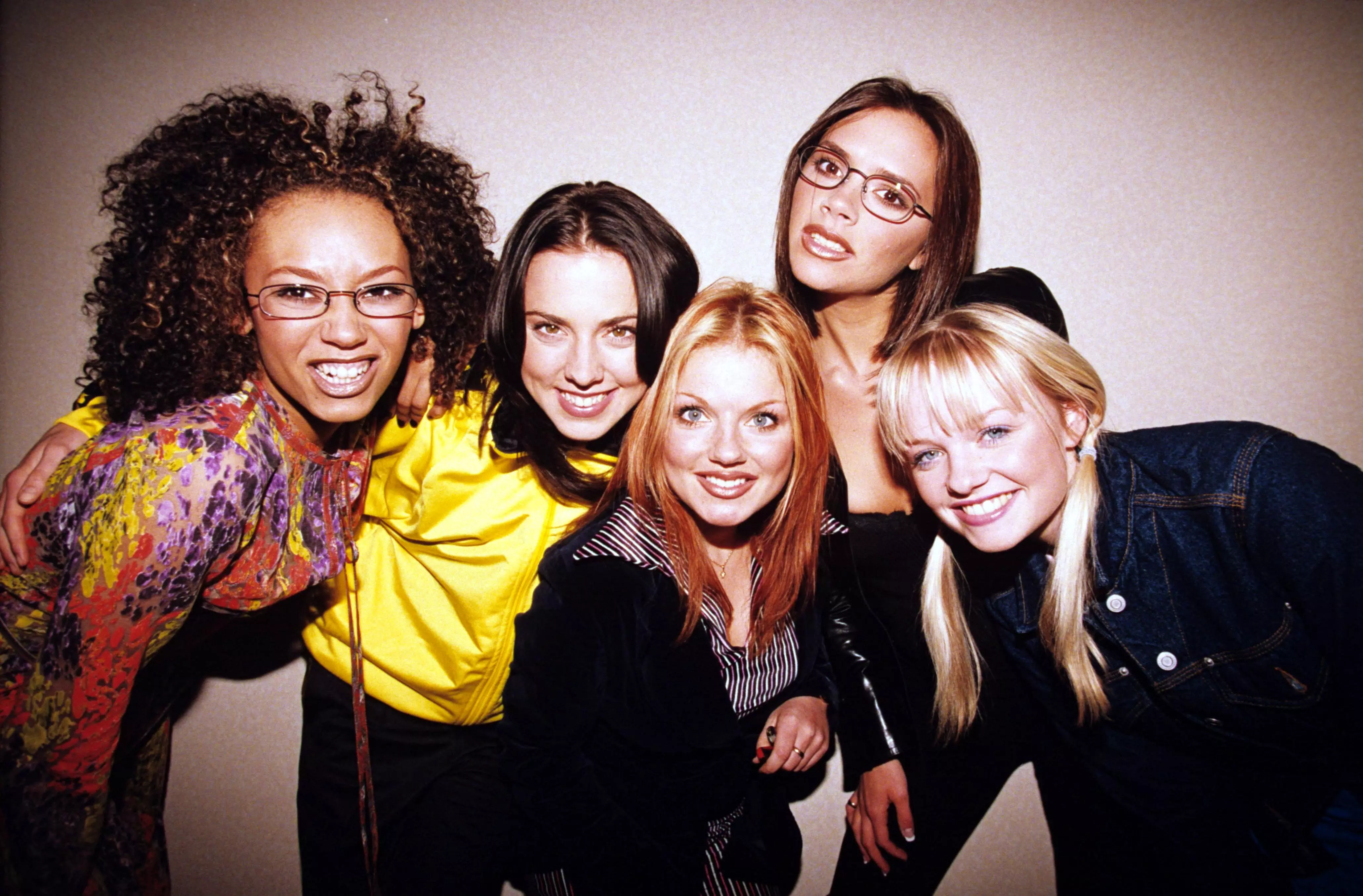
On This Day In Music: Spice Girls Release "Wannabe," Their Iconic Debut Single
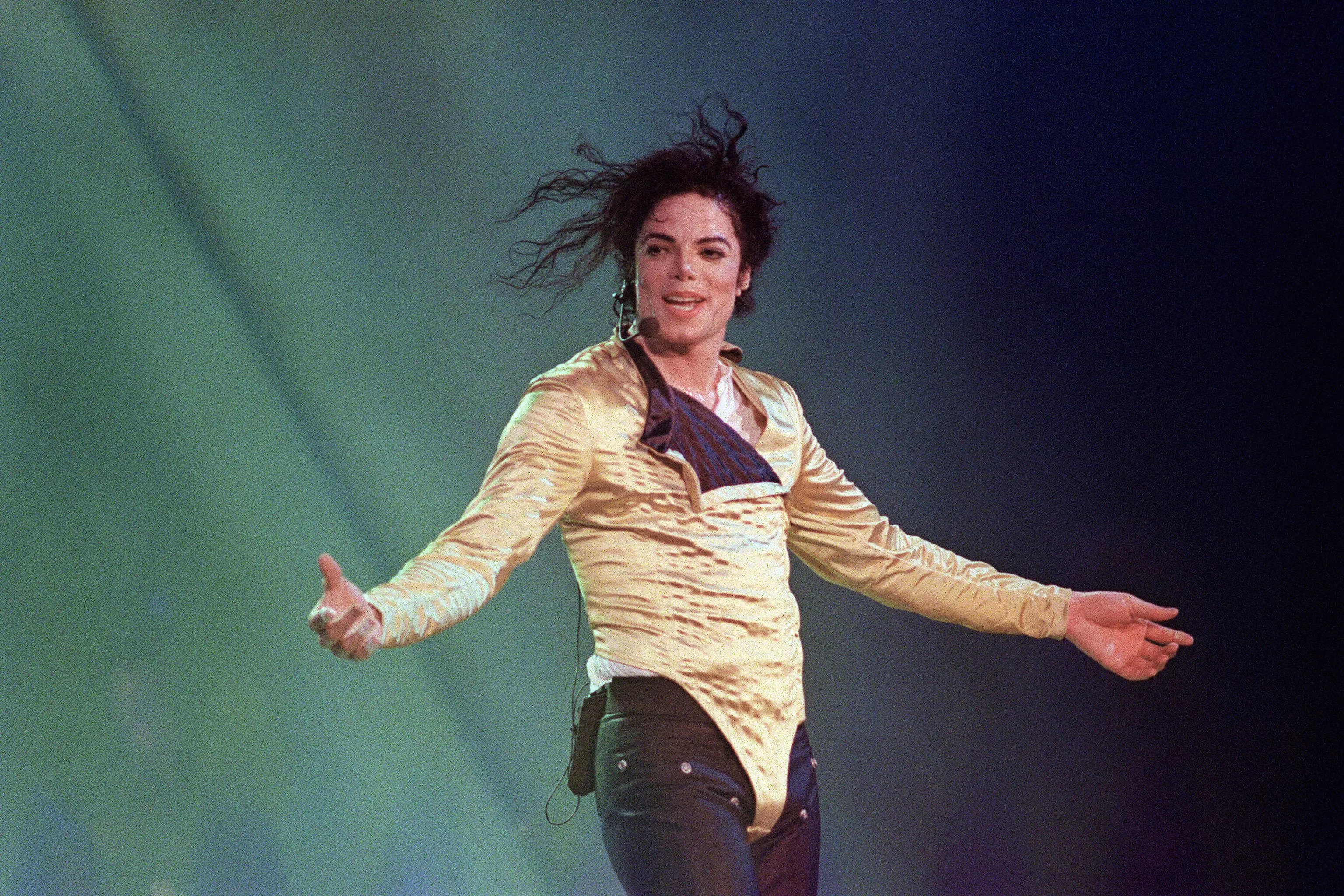
On This Day In Music: Michael Jackson Passes Away In Los Angeles At Age 50
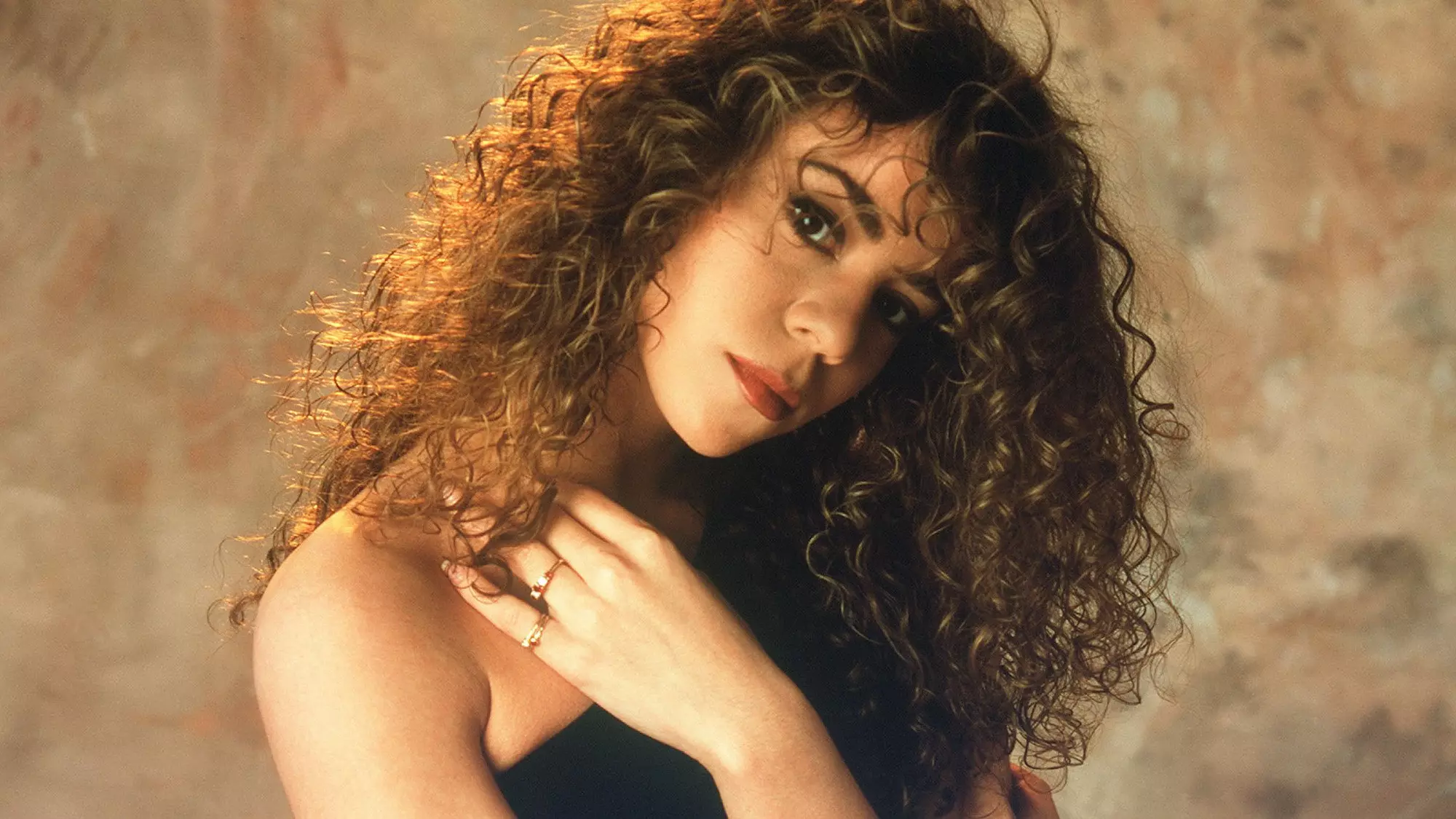
On This Day In Music: Mariah Carey Releases Her Self-Titled Debut Album
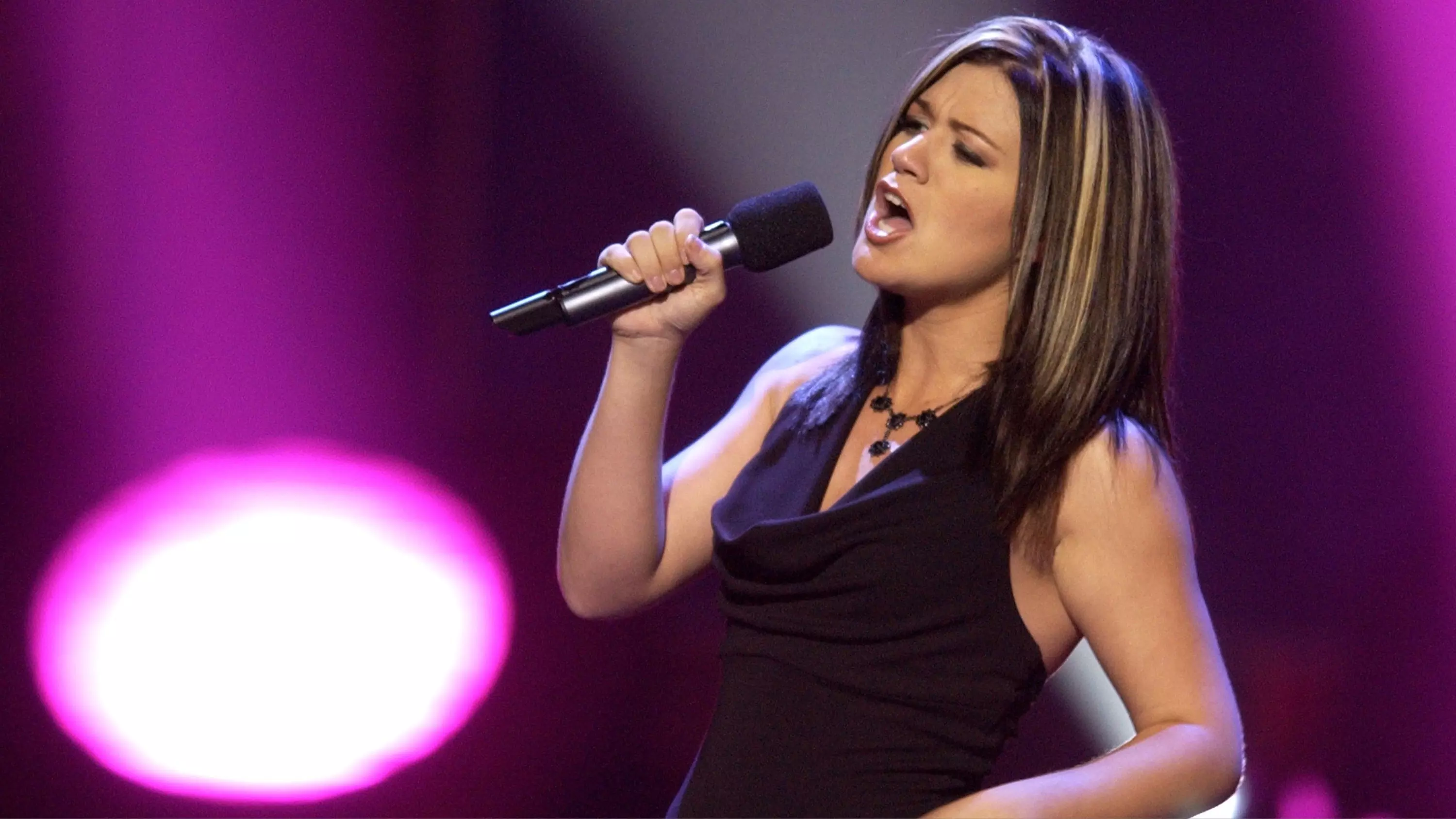
On This Day In Music: "American Idol" Premieres On Fox Network
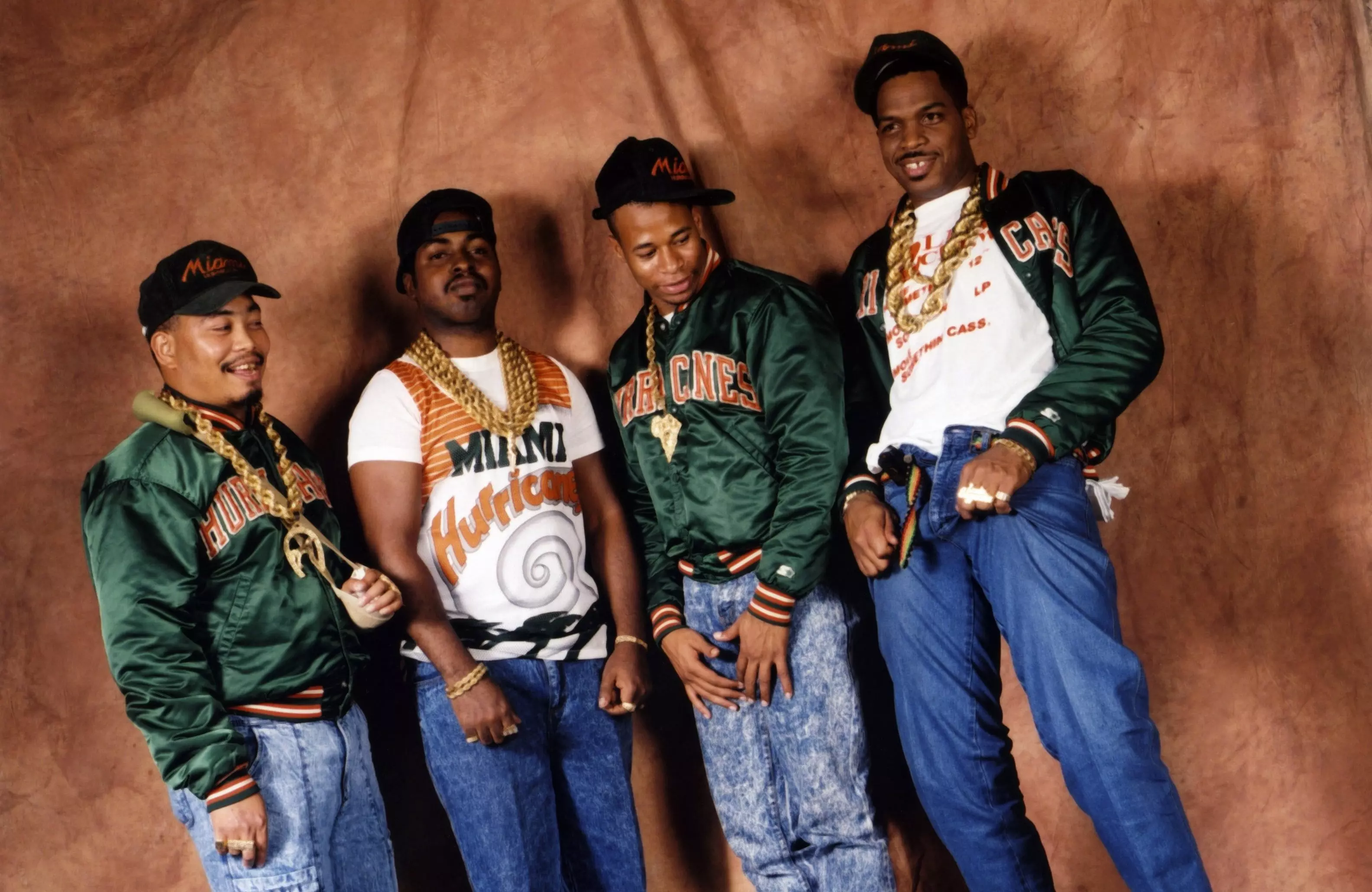
On This Day In Music: 2 Live Crew's 'As Nasty As They Wanna Be' Becomes First Album Declared Legally Obscene, Anticipates First Amendment Cases

Photo: Jathan Campbell
list
How Much Is A GRAMMY Worth? 7 Facts To Know About The GRAMMY Award Trophy
Here are seven facts to know about the actual cost and worth of a GRAMMY trophy, presented once a year by the Recording Academy at the GRAMMY Awards.
Since 1959, the GRAMMY Award has been music’s most coveted honor. Each year at the annual GRAMMY Awards, GRAMMY-winning and -nominated artists are recognized for their musical excellence by their peers. Their lives are forever changed — so are their career trajectories. And when you have questions about the GRAMMYs, we have answers.
Here are seven facts to know about the value of the GRAMMY trophy.
How Much Does A GRAMMY Trophy Cost To Make?
The cost to produce a GRAMMY Award trophy, including labor and materials, is nearly $800. Bob Graves, who cast the original GRAMMY mold inside his garage in 1958, passed on his legacy to John Billings, his neighbor, in 1983. Billings, also known as "The GRAMMY Man," designed the current model in use, which debuted in 1991.
How Long Does It Take To Make A GRAMMY Trophy?
Billings and his crew work on making GRAMMY trophies throughout the year. Each GRAMMY is handmade, and each GRAMMY Award trophy takes 15 hours to produce.
Where Are The GRAMMY Trophies Made?
While Los Angeles is the headquarters of the Recording Academy and the GRAMMYs, and regularly the home of the annual GRAMMY Awards, GRAMMY trophies are produced at Billings Artworks in Ridgway, Colorado, about 800 miles away from L.A.
Is The GRAMMY Award Made Of Real Gold?
GRAMMY Awards are made of a trademarked alloy called "Grammium" — a secret zinc alloy — and are plated with 24-karat gold.
How Many GRAMMY Trophies Are Made Per Year?
Approximately 600-800 GRAMMY Award trophies are produced per year. This includes both GRAMMY Awards and Latin GRAMMY Awards for the two Academies; the number of GRAMMYs manufactured each year always depends on the number of winners and Categories we award across both award shows.
Fun fact: The two GRAMMY trophies have different-colored bases. The GRAMMY Award has a black base, while the Latin GRAMMY Award has a burgundy base.
Photos: Gabriel Bouys/AFP via Getty Images; Frederick M. Brown/Getty Images
How Much Does A GRAMMY Weigh?
The GRAMMY trophy weighs approximately 5 pounds. The trophy's height is 9-and-a-half inches. The trophy's width is nearly 6 inches by 6 inches.
What Is The True Value Of A GRAMMY?
Winning a GRAMMY, and even just being nominated for a GRAMMY, has an immeasurable positive impact on the nominated and winning artists. It opens up new career avenues, builds global awareness of artists, and ultimately solidifies a creator’s place in history. Since the GRAMMY Award is the only peer-voted award in music, this means artists are recognized, awarded and celebrated by those in their fields and industries, ultimately making the value of a GRAMMY truly priceless and immeasurable.
In an interview featured in the 2024 GRAMMYs program book, two-time GRAMMY winner Lauren Daigle spoke of the value and impact of a GRAMMY Award. "Time has passed since I got my [first] GRAMMYs, but the rooms that I am now able to sit in, with some of the most incredible writers, producers and performers on the planet, is truly the greatest gift of all."
"Once you have that credential, it's a different certification. It definitely holds weight," two-time GRAMMY winner Tariq "Black Thought" Trotter of the Roots added. "It's a huge stamp as far as branding, businesswise, achievement-wise and in every regard. What the GRAMMY means to people, fans and artists is ever-evolving."
As Billboard explains, artists will often see significant boosts in album sales and streaming numbers after winning a GRAMMY or performing on the GRAMMY stage. This is known as the "GRAMMY Effect," an industry phenomenon in which a GRAMMY accolade directly influences the music biz and the wider popular culture.
For new artists in particular, the "GRAMMY Effect" has immensely helped rising creators reach new professional heights. Samara Joy, who won the GRAMMY for Best New Artist at the 2023 GRAMMYs, saw a 989% boost in sales and a 670% increase in on-demand streams for her album Linger Awhile, which won the GRAMMY for Best Jazz Vocal Album that same night. H.E.R., a former Best New Artist nominee, saw a massive 6,771% increase in song sales for her hit “I Can’t Breathe” on the day it won the GRAMMY for Song Of The Year at the 2021 GRAMMYs, compared to the day before, Rolling Stone reports.
Throughout the decades, past Best New Artist winners have continued to dominate the music industry and charts since taking home the GRAMMY gold — and continue to do so to this day. Recently, Best New Artist winners dominated the music industry and charts in 2023: Billie Eilish (2020 winner) sold 2 million equivalent album units, Olivia Rodrigo (2022 winner) sold 2.1 million equivalent album units, and Adele (2009 winner) sold 1.3 million equivalent album units. Elsewhere, past Best New Artist winners have gone on to star in major Hollywood blockbusters (Dua Lipa); headline arena tours and sign major brand deals (Megan Thee Stallion); become LGBTIA+ icons (Sam Smith); and reach multiplatinum status (John Legend).
Most recently, several winners, nominees and performers at the 2024 GRAMMYs saw significant bumps in U.S. streams and sales: Tracy Chapman's classic, GRAMMY-winning single "Fast Car," which she performed alongside Luke Combs, returned to the Billboard Hot 100 chart for the first time since 1988, when the song was originally released, according to Billboard. Fellow icon Joni Mitchell saw her ‘60s classic “Both Sides, Now,” hit the top 10 on the Digital Song Sales chart, Billboard reports.
In addition to financial gains, artists also experience significant professional wins as a result of their GRAMMY accolades. For instance, after she won the GRAMMY for Best Reggae Album for Rapture at the 2020 GRAMMYs, Koffee signed a U.S. record deal; after his first GRAMMYs in 2014, Kendrick Lamar saw a 349% increase in his Instagram following, Billboard reports.
Visit our interactive GRAMMY Awards Journey page to learn more about the GRAMMY Awards and the voting process behind the annual ceremony.
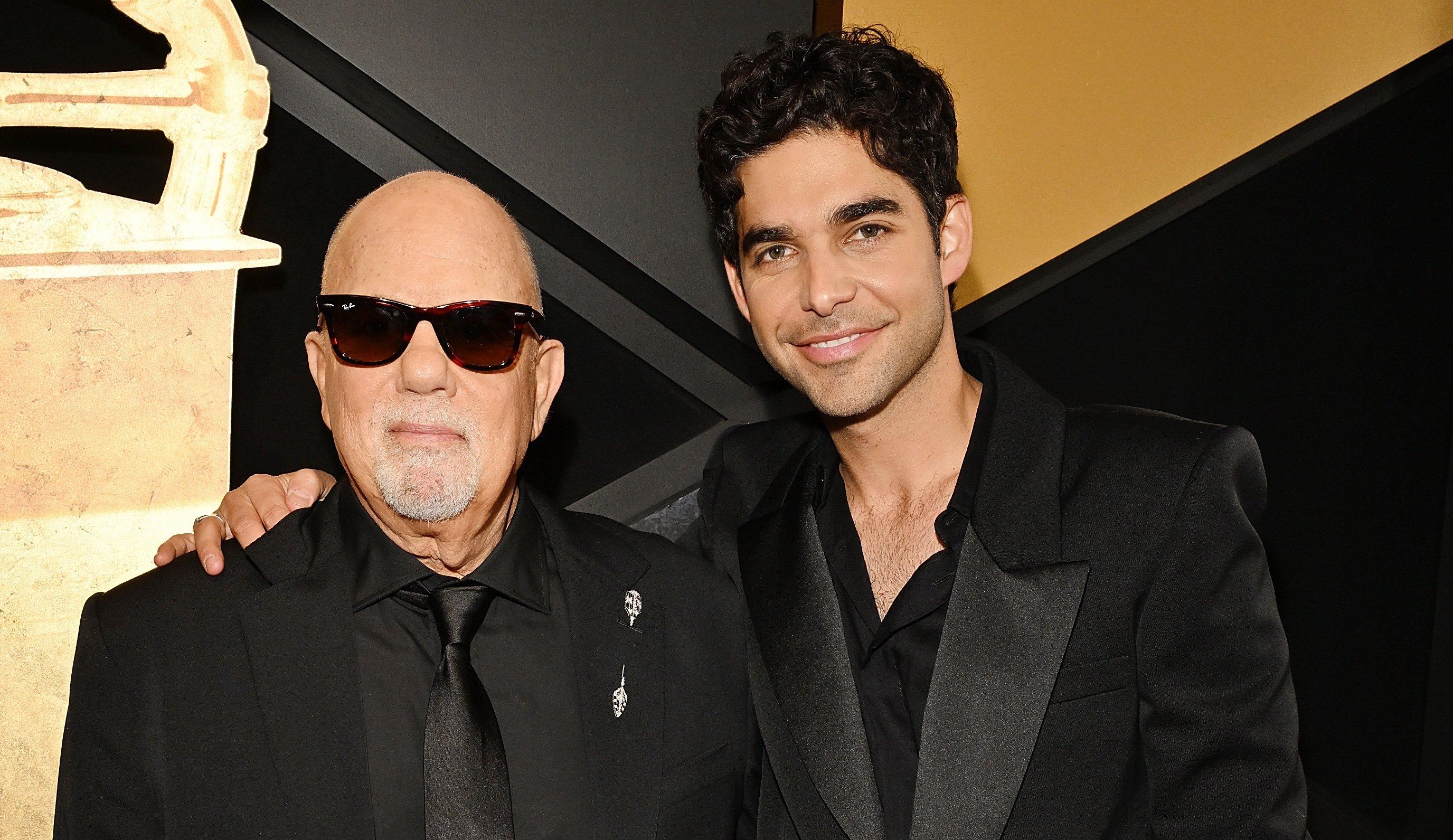
(L-R) Billy Joel, Freddy Wexler
interview
Freddy Wexler On Helping Billy Joel "Turn The Lights Back On" — At The 2024 GRAMMYs And Beyond
"Part of what was so beautiful for me to see on GRAMMY night was the respect and adoration that people of all ages and from all genres have for Billy Joel," Wexler says of Joel's 2024 GRAMMYs performance of their co-written "Turn The Lights Back On."
They say to not meet your heroes. But when Freddy Wexler — a lifelong Billy Joel fan — did just that, it was as if Joel walked straight out of his record collection.
"I think the truth is none of it is that surprising," the 37-year-old songwriter and producer tells GRAMMY.com. "That's the best part. From his music, I would've thought this is a humble, brilliant everyman who probably walks around with a very grounded perspective, and that's exactly who he is."
That groundedness made possible "Turn the Lights Back On" — the hit comeback single they co-wrote, and Wexler co-produced; Joel performed a resplendent version at the 2024 GRAMMYs with Laufey. Joel hadn't released a pop album since 1993's River of Dreams; for him to return to the throne would take an awfully demonstrative song, true to his life.
"I think it's a very raw, honest, real perspective that is true to Billy," Wexler explains. "I think it's the first time we've heard him acknowledge mistakes and regret in quite this way."
Specifically, Joel's return highlights his regret over spending three decades mostly on the bench, largely absent from the pop scene. As Joel wonders aloud in the stirring, arpeggiated chorus, "Is there still time for forgiveness?"
"Forgiveness" is a curious word. Why would the five-time GRAMMY winner and 23-time nominee possibly need to seek forgiveness? Regardless — as the song goes — he's "tryin' to find the magic/ That we lost somehow." The song's message — an attempt to recapture a lost essence — transcends Joel's personal headspace, connecting with a universal longing and nostalgia.
Read on for an interview with Wexler about the impact of "Turn the Lights Back On," why he thinks Joel took such an extended sabbatical, the prospect of more new music, and much more.
This interview has been edited for clarity.
**You did a great interview with Rolling Stone ahead of the 2024 GRAMMYs. Now, we're on the other side of it; you got to see how it went down on the telecast, and resonated with the audience and world. What was that like?**
It's why I make music — to hopefully make people feel something. This song has really resonated in such a big way. More than looking at its commercial success on the charts or on radio, which has been awesome to see, the comments on Instagram and YouTube have been the most rewarding part of it.
Why do you think it resonated? Beyond the king picking up his crown again?
I don't think the song is trying to be anything it's not. I think it's a very raw, honest, real perspective that is true to Billy. I think it's the first time we've heard him acknowledge mistakes and regret in quite this way. And to hear him do it in a hopeful way where he's asking, "Is it too late for forgiveness?" is just very moving, I think.
Forgiveness? That's interesting. What would any of us need to forgive him?
He has said in other interviews, "Sometimes people say they have no regrets at the end of their life." And he said, "I don't think that's possible. If you've lived a full life, of course you have regrets." He has said that he has many things he wishes he would've done differently. This is an opportunity to express that.
I think what's interesting about the song is it has found meaning in various ways with various people and listeners. Some people imagine Billy is singing to former lovers or friends. Other people imagine Billy is singing to his fans asking, "Did I wait too long to record again?" Other people wonder if Billy is singing to the songwriting Gods and muses. Did I wait too long to write again?
In Israel, where the song was number one — or is number one, I haven't checked today — I think the song's taken on the meaning of just wanting things to be normal, wanting hostages to come home and turn the lights back on. So, you never know where a song is going to resonate, but I think that Billy just found his own meaning with it.
You know the discography front to back. What lines can you draw from "Turn the Lights Back On" to past works?
I think it draws on various pieces of his catalog, right? "She's Always a Woman" has a sort of piano arpeggio in the chorus. To me, it feels like a natural progression. It feels like, on the one hand, it's a new song. On the other, it could have come out right after River of Dreams. To me, it just kind of feels natural.
**Back when you spoke with Rolling Stone, you said you couldn't wait to hear "Turn the Lights Back On" at Madison Square Garden. How'd it sound?**
Amazing. Billy is a consummate live performer. I think he's one of the few artists where everything is better live, and everything is always a little bit different each time it's played live.
It's been really cool to watch Billy and the band continue to change and improve the song and the song's dynamics for the show. He told me tonight that tomorrow night in Tampa, I think they're going to try to play with the key of the song, potentially — try it a half a step higher.
Those are the sort of things I think great artists do, right? It's different from being on a certain type of tour where every single song is the same, the set list is the same, the key is the same, the arrangements are the same.
With Billy, there's a lot of feeling and, "Hey, why don't we try it this way? Let's play it a little faster. Let's play it a little slower. Let's try it in a different key." I just think that's super cool. You have to be a really good musician to just do that on the fly.
What have you learned from him that applies to your music making, writ large?
I've learned so much from him. As Olivia Rodrigo said to us at GRAMMY rehearsals, "He's the blueprint when it comes to songwriting."
He has helped raise the bar for me when it comes to melodies and lyrics, but the thing I keep coming back to is he's reminded me that even the greatest artists and songwriters ever sometimes forget how great they are. I think we need to be careful not to give that inner voice and inner critic too much power.
Can you talk about how the music video came to be?
Well, I had a dream that Billy was singing the opening two lines of the song, but it was a 25-year-old version of Billy. It was arresting.
When I woke up, I sort of had the vision for the video, which was one set, an empty venue of some kind, and four Billy Joels. The Billy Joel that really exists today, but then three Billys from three iconic eras where each Billy would seamlessly pick up the song where the other left off.
The idea behind that was to sort of accentuate the question of the song — did I wait too long to turn the lights back on?
And so, to kind of take us through time and through all these years, I teamed up with an amazing co-director, Warren Fu, who's done everything from Dua Lipa to Daft Punk, and an artificial intelligence company called Deep Voodoo to make that vision possible.
What I'm driven by is the opportunity to create conversations, cultural moments, things that make people feel something. What was cool here is as scary as AI is — and I think it is scary in many ways — we were able to give an example of how you can use it in a positive way to execute a creative artistic vision that previously would've been impossible to execute.
Yeah, so I'm pleased with it and I'm thankful that Billy did a video. He didn't have to do one, but he liked the idea of it. He felt it was different, and I think he was moved by it as well.
What do you think is the next step here?
It's been a really rewarding process. And Billy is open-minded, which is really cool for an artist of that level, who's not a new artist by any stretch. To actually be described as being in a place in his life where he's open-minded, means anything is possible. I could tell you that I would love there to be more music.
I'd love to get your honest appraisal. And I know you're not him. But his last pop album was released 31 years ago. In that long interim, what do you think was going on with him, creatively?
Look, I'm not Billy Joel, but I think there were a number of factors going on with him. Somewhere along the way, I think he stopped having fun with music, which is the reason he got into it, or which is a big part of the reason he got into it. When it stopped being fun, I don't think he really wanted to do it anymore.
Another piece to it is that Billy is a perfectionist, and that perfectionism is evident in the caliber of his songwriting. Having always written 100 percent of his songs, Billy at some point probably found that process to be painstaking, to try to hit that bar where he's probably wondering in his head, What would Beethoven think of this? What would Leonard Bernstein think of this?
I think part of what was different here was that, perhaps, there was something liberating about "Turn the Lights Back On" being a seed that was brought to Billy. In this way, he could be a little disconnected from it, where maybe he didn't have to have the self-imposed pressure that he would if it was an idea that he'd been trying to finish for a while.
Ironically, he still made it. Well, there's no "ironically," but I think that's it. There's something to that.
Billy Joel's Biggest Songs: 15 Tracks That Best Showcase The Piano Man's Storytelling And Pop Hooks
